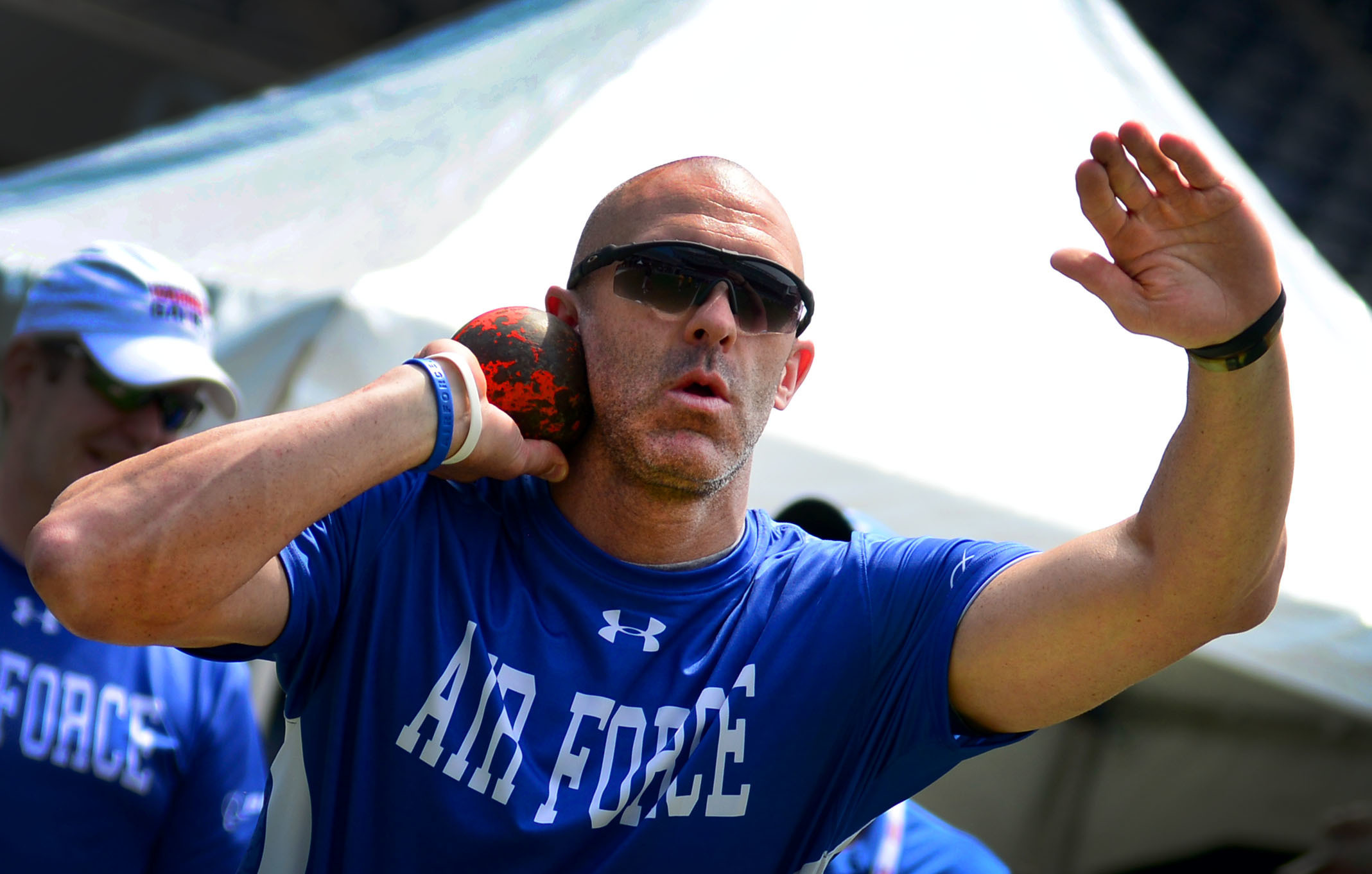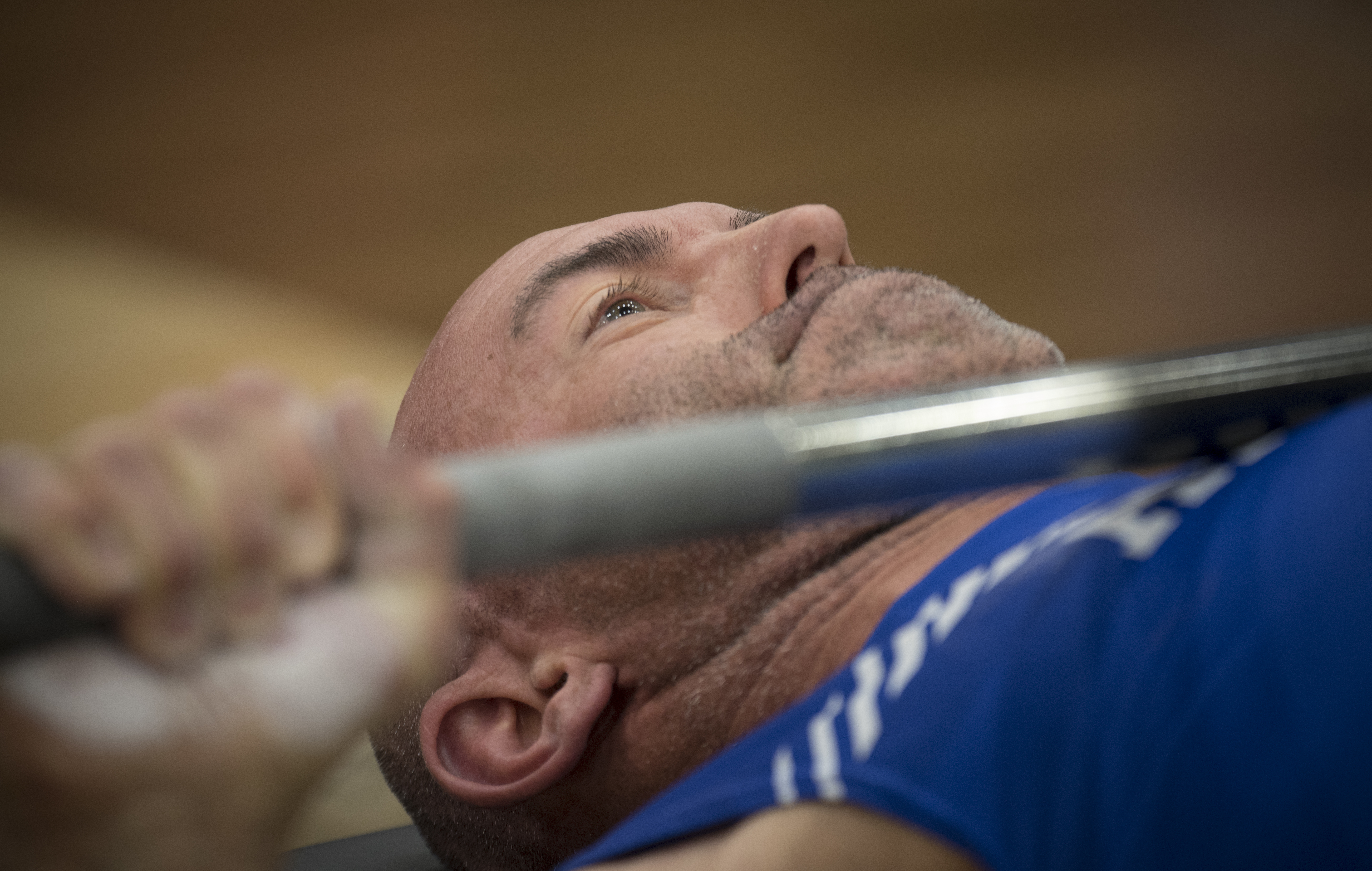Q&A with Tech. Sgt. Joshua Smith
By Corey Parrish and Brian Anderson -- Defense Media Activity
June 21, 2019
Athlete: Tech. Sgt. Joshua Smith
Status: Medically retired. Permanent Disability Retired List
Job in the Air Force: Aircrew Flight Equipment Specialist
Resides: Fairfield, Montana
 U.S. Air Force veteran Joshua Smith, an aircrew flight equipment technician from Fairfield, Mont., competes in the seated shot put. (U.S. Air Force photo by Staff Sgt. Alexx Pons)
U.S. Air Force veteran Joshua Smith, an aircrew flight equipment technician from Fairfield, Mont., competes in the seated shot put. (U.S. Air Force photo by Staff Sgt. Alexx Pons) Q. Tell me about how you feel when you are participating in these events. What's going through your mind?
One of the first things that goes through my mind is when I come to these events who are the new people here for the first time and who can I kind of mentor and coach and reach out to because I remember when I went to my first event you know you're like a deer in the headlights you don't know what to expect so I'm trying to reach out and find those people who are new or you look at them and feel like you know they're kind of sitting in that corner they're kind of by themselves they don't really want to communicate or talk and so I try to seek out first-timers and those who may be struggling and just try to start with a conversation hey how you doing today and trying to get to know people and really trying to help mold them into our afw to family and each event I've been at I've made new friends and I feel that I've been able to connect with certain people and help them feel how I felt when I first came into this AFW2 family.

Team Air Force athlete Joshua Smith participates in the track competition of the Department of Defense Warrior Games at the U.S. Air Force Academy, Colorado Springs, Colorado. (U.S. Air Force Photo by Staff Sgt. Rusty Frank)
Q. Why is this program important to the athlete's recovery and Air Force in general?
First and foremost this program saves lives. That's the biggest thing. There's so many people, so many friends that I've made in the last couple years being involved with this program who we're at an extreme low in their life and they question, why am I even living? Why am I even here? What's my purpose in life? To see people who come into this program do a complete 180 and gain confidence and self-esteem, that's a huge part of their healing and recovery process, but number one is it's changing their life and they get a sense of direction and purpose in their life again through the struggles and the wounds, illnesses and injuries that they've had and they know that they're not alone. We're all connected as a family. So, to see those people who are at such a low in their life and to come out of that and to see them come here and participate in the adaptive sports and compete and feel part of a family who truly cares for them, it's amazing. It's hard to describe the feeling and the sense of purpose that gives to each one of us.
 Joshua Smith, Department of Defense Warrior Games athlete on Team Air Force, competes in the powerlifting event at the Games in Colorado Springs, Colorado. (U.S. Air Force Photo by Senior Airman Dennis Hoffman)
Joshua Smith, Department of Defense Warrior Games athlete on Team Air Force, competes in the powerlifting event at the Games in Colorado Springs, Colorado. (U.S. Air Force Photo by Senior Airman Dennis Hoffman) Q. Do you think this program taught you that resilience?
Definitely! I think this program does a great job of teaching resiliency and a determination and an attitude of we never quit, we never give up. We keep fighting; we're gonna keep trying to accomplish goals and dreams whether those are within adaptive sports and the AFW2 program or things that are beyond that whether that going back to school and you know adding to education or whether that's relationships with your family or your spouse or your children or other friends that you have. I think you can use it this resiliency tool that the program teaches in all aspects and phases of your life.